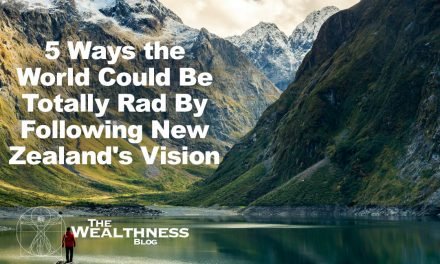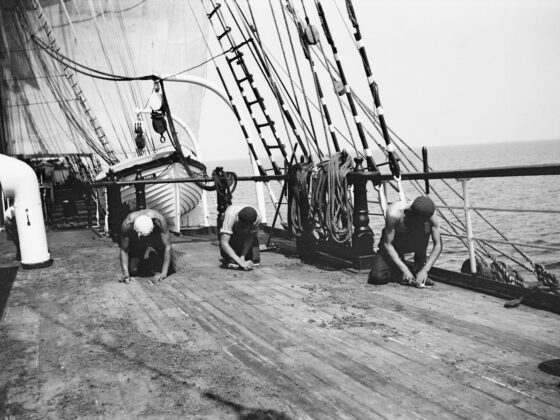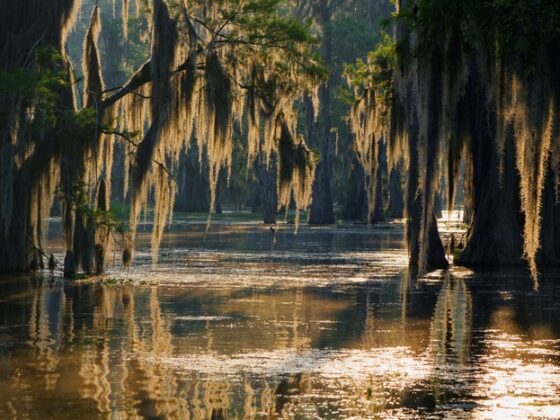Jacinda Ardern pledged, on election night, to build back better. With her landslide election win, there really is no excuse not to. So, what could Aotearoa New Zealand look like in ten years’ time, if the Labour-led Government makes good on this promise?
Just ahead is a rare chance to fundamentally transform New Zealand into a better place for all of us – a place where we and our children have real hope for a more fair, thriving and abundant future.
We will have to push for it though. The demands of big industry and vested interests to cling to business-as-usual will be strong.
But this is the best opportunity we’ve had in our lifetime to tackle the climate crisis, protect nature and build a fairer Aotearoa. So it’s worth fighting for. There has never been a greater public mandate, more money on the table (thanks to the Covid recovery budget) – or a greater need for big bold transformations.
Here are just five ways that New Zealand could be reshaped for good if Jacinda Ardern delivers on her promise to build back better:
It will be convenient and comfortable to get around
It’s 2030. Because the Government chose to invest its multi-billion dollar infrastructure fund in public transport and bike paths, we now have so many convenient, affordable and comfortable options for getting around.
You don’t think twice about taking the bus, tram or train to work – they’re frequent and run on time. You can comfortably read a book, charge your phone or check your emails on the free wifi, instead of stressing about the traffic. Plus, you don’t need to worry about finding parking at the other end – what a relief.
On warm, sunny days, you choose to ride your bike to drop the kids off at school. You know it’s safe because the lanes are separate from the traffic. And, because the Government has banned new imports of big gas guzzlers and made it cheaper for people to buy an electric car, it’s safer and the air is starting to get a lot less dirty.
Neighbourhoods and streets are now being designed with children, disabled people and the elderly at the centre. It makes so much sense that you wonder why we didn’t always do things this way. You see so many more people scooting, pushing prams, using wheelchairs and walking now that it’s safer, cleaner and more convenient.
There’s a long weekend coming up and you’ve booked the train to visit your family in another city. With so much beautiful scenery to look at, a cafe car and the affordable family tickets, it’s a lot less stressful than when you used to have to pack all the kids in the car for a long road-trip.
Farms and rural communities will be flourishing
The countryside is thriving. In New Zealand’s rural heartlands, the land looks lush and the animals look healthy. There are a lot less muddy paddocks packed tight with cows. Instead you spot a few cattle, sheep and deer under the shade of big fruit and nut trees. Veggies and grain crops thrive amongst the trees and animals. Rivers and streams are surrounded by lush, regenerating native bush, and you spot native fish darting through the clear water. It almost looks more like a forest than the industrial farms you were used to in 2020. You’ve noticed how the native birds are coming back too – tūī singing in your garden, cheeky pīwakawaka flitting over farmland.
It’s a lot cheaper and easier to get hold of fresh fruit and vegetables. You can get locally-produced food delivered to your door and the shops are full of fresh produce that was grown just down the road. You’ve noticed that your food has more flavour and feels more nutritious.
All of this was possible because the Government thought ahead and realised that regenerative farming that works with nature, not against it, is the future. So they introduced a $1 billion fund to help farmers shift to more plant-based regenerative farming. They invested in local composting facilities to make it easier for farmers to access organic nutrients for the soil. And as New Zealand rides the wave of global demand for plant-based food, new jobs making healthy, sustainable plant-based food are popping up across the country.
Our streets, air, rivers and oceans will be clean
You’ve noticed that the local rivers and lakes are clean and safe for swimming in again. Ever since they stopped using so much fertiliser on the farms and since conservation workers planted along all the riverbeds, you haven’t had to worry about taking a dip in your local swimming hole.
Even in the cities, everything just feels distinctly cleaner. You barely remember what it was like to buy a drink in a plastic bottle, only to chuck it away after one use. Ever since the Government introduced mandatory refillable containers, all of your drinks now come in glass bottles that you return for sterilisation and re-use. You’ve noticed the difference – there’s so much less litter on the streets. It’s also created a lot of new local jobs.
You read in the news that other countries are starting to follow New Zealand’s example. The amount of plastic pollution going into the oceans is finally dropping.
The air also feels cleaner since it became so much easier to walk, ride a bike or get an electric bus and train, instead of having no option but to drive. You feel a lot safer since they took all the big trucks off of city streets and moved them onto the electric railways. It would be a lot less noisy too, if it wasn’t for all the native birds that have returned to the city.
Nature will be rebounding in ways we’ve never experienced in our lifetime
Everywhere you look, nature is thriving. You never knew just how beautiful and abundant nature could be, in cities and in the countryside. Your whole life you’d heard about how animals and plants were going extinct at faster rates every year. Thinking back, you didn’t believe it was even possible for things to turn around as quickly as they did.
Covid-19 was a big blow to the tourism industry, so the Government acted fast to create new jobs in tourism hotspots. The flagship programme was the Conservation Corps. Tens of thousands of New Zealanders got to work planting native forests, removing pests, and helping native species to thrive.
Iwi-led projects restored huge areas of forest. Mussel and shellfish beds have been restored in the harbours too, making the oceans cleaner and full of fish. It wouldn’t have happened if it weren’t also for the new fisheries regulations, which have made it illegal to bottom trawl on seamounts, and mandatory to put cameras on all commercial fishing boats. That’s made it impossible to illegally dump fish and bycatch. Fishers now have to use gear which stops birds and dolphins from getting caught on fishing lines and tangled in nets. You’ve noticed how much easier it is to catch a big, healthy fish when you’re out on the water with your family. You’re spotting more birds and other wildlife out in the ocean too.
Homes are warm, dry and affordable to heat
You’ve always lived in rentals and you remember how you used to have to put on a puffer jacket just to sit in the lounge in winter. But things have changed so much since then. Heaps of new houses are being built and they’re all required to meet the highest insulation standards. They’ve even got solar panels on the roof and rainwater collection. They’re becoming a lot more affordable too. You used to think you’d never be able to own a home but now it looks like you’ll have saved up enough to be able to buy one in the next couple of years.
Fortunately, the Government required all landlords to install proper insulation and a heat pump, so the home you live in now is warm and dry too. The power bill has become a lot cheaper since they installed solar panels on a lot of the nearby buildings. And you’ve just bought a share in a community solar scheme, which means you’ll own your own power instead of having to buy it off of a big electricity company.
You hear on the news that cases of rheumatic fever and other illnesses have plunged since the Government invested in making homes warm and dry. Kids are spending more days in school and less time in hospital. In general, you can’t help but notice how much healthier everyone has become since they’ve been able to bike and walk to school and work too.
Let’s Build Back Better
Right now, we have the chance to realise this vision. The economic recovery from Covid-19 is a once-in-a-lifetime opportunity to reset our society and economy so that it puts people and nature first. New Zealanders want a government that has the courage to re-imagine Aotearoa. If we act now, together we can create a cleaner, fairer and more resilient society.
Credit: Greenpeace NZ










